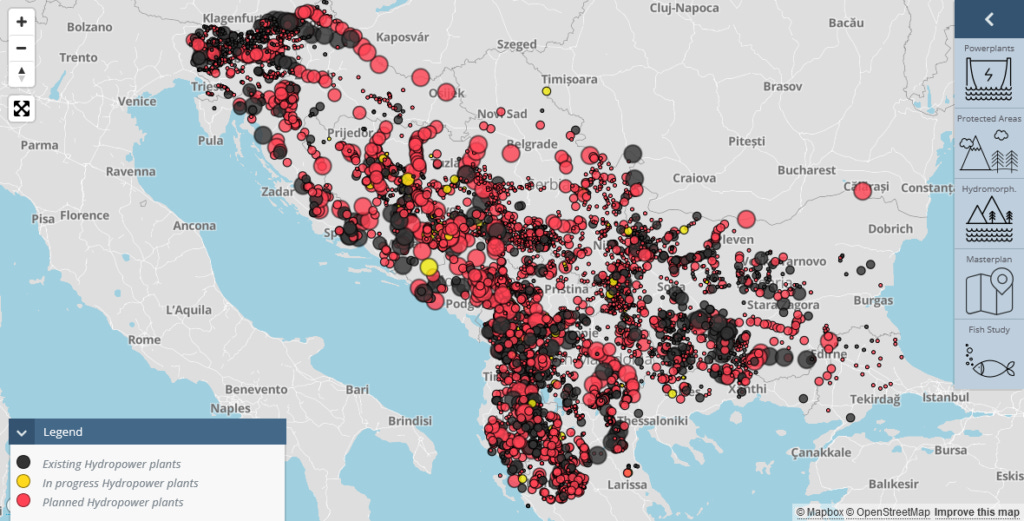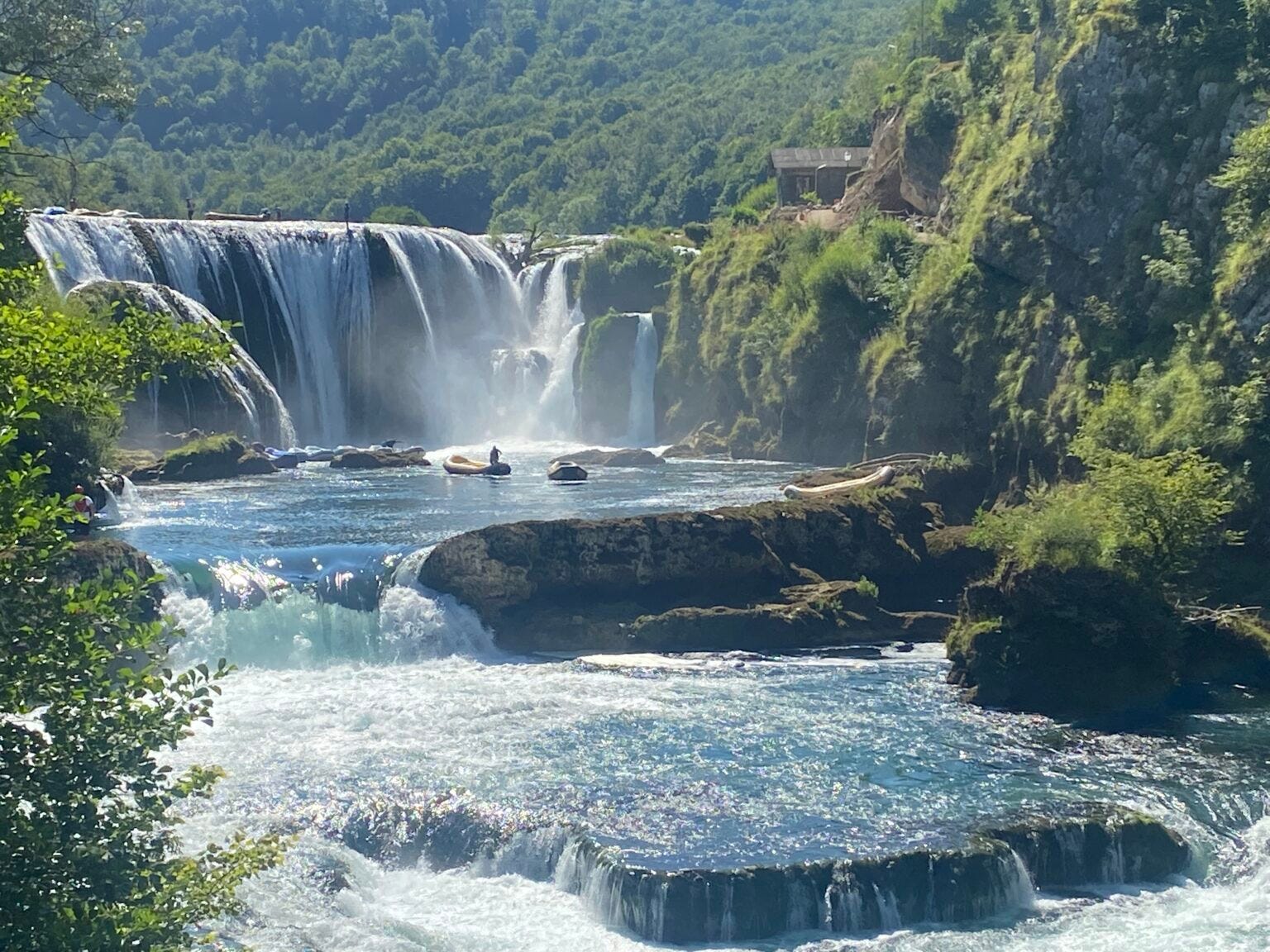The idyllic source of the Una River, a waterway winding 215 kilometres through Bosnia and Herzegovina and Croatia, is on the brink of being transformed into a hydroelectric power plant site. Residents from nearby towns like Donja Suvaja and Srb have been actively protesting for a month to halt the construction, trying to protect one of Europe’s clearest and deepest water sources.
For these communities, the Una is much more than just a river. It is a cherished place which unites the local population, and it is now at risk of irreparable damage. The importance of the river is recognized beyond the closest localities. Over 14,000 people signed a petition to back the locals, and many joined them in physically blocking the construction machinery from advancing. During the latest protest action, held on 6 August, the locals reiterated their objections to the project. “The local population and all attendees are firmly opposed to this project, which threatens our invaluable natural heritage,” stated the activist group Udruga Una Srb.
Despite public opposition, the private investor reportedly sporadically resumes work, exploiting moments when the media and local activists are not there. The construction has already resulted in damage: the original pathway to the source was razed to make room for the machinery and nearby inhabitants have reported muddying of the waters as well as damage to the public water infrastructure. This has left some of them without water at the height of one of this summer’s heat waves, the media outlet Klimatski portal reported at the time.
The project seemingly proceeds without all the necessary permits and environmental assessments, an oversight which is difficult to understand given the river’s location within the protected Natura 2000 network and the fact that it has been a safeguarded locality ever since the 1960s. Even more incredibly, while the plant is in construction on the Croatian strand of the Una River, the other brink of the river, across the border in BiH, is no less than a national park.
As a result, activists from BiH have joined the locals in their mobilization against the devastation. “The construction of the plant threatens not only the ecological integrity of the river, but also the way of life of people who have been tied to its banks for centuries. Una is threatened with devastation that will have long-term consequences for the environment and the communities that depend on it,” Eko BiH Network said in a statement of support.
Unregulated hydro projects threaten Balkans
The case of the Una River source highlights a broader issue across the Balkans, where hundreds of small hydro projects, framed as green solutions, have sprouted over the years. Promoted as part of the European strategy to secure more sustainable energy supplies, the plants and dams that come with them have instead brought along considerable environmental and societal damage. Their contribution to the overall energy production remains minimal, but the investors are generally able to secure a good profit through public subsidies.

At the same time, these so-called development projects bring public health and biodiversity risks to which Croatia is no stranger to. Similar projects on the Kupa River have harmed local fish populations, according to the regional organization Bankwatch. In 2019/2020, the watchdog warned that such dams could deplete up to 10% of Europe’s freshwater fish species and affect many endemic species.
Despite investors presenting small hydroelectric power plants as low-risk, the dangers remain. Bankwatch has noted that, where local authorities are lax about enforcing regulations, it is almost certain that investors will cut corners. Sadly, this is evident in the project at the source of the Una River, where local inspectors have been slow to conduct field assessments. As local activists remain vigilant about the continuation of the construction work, the fight for Una’s future is not just about preserving a river but about challenging a development model that sells off irreplaceable natural resources for short-term private gains.





